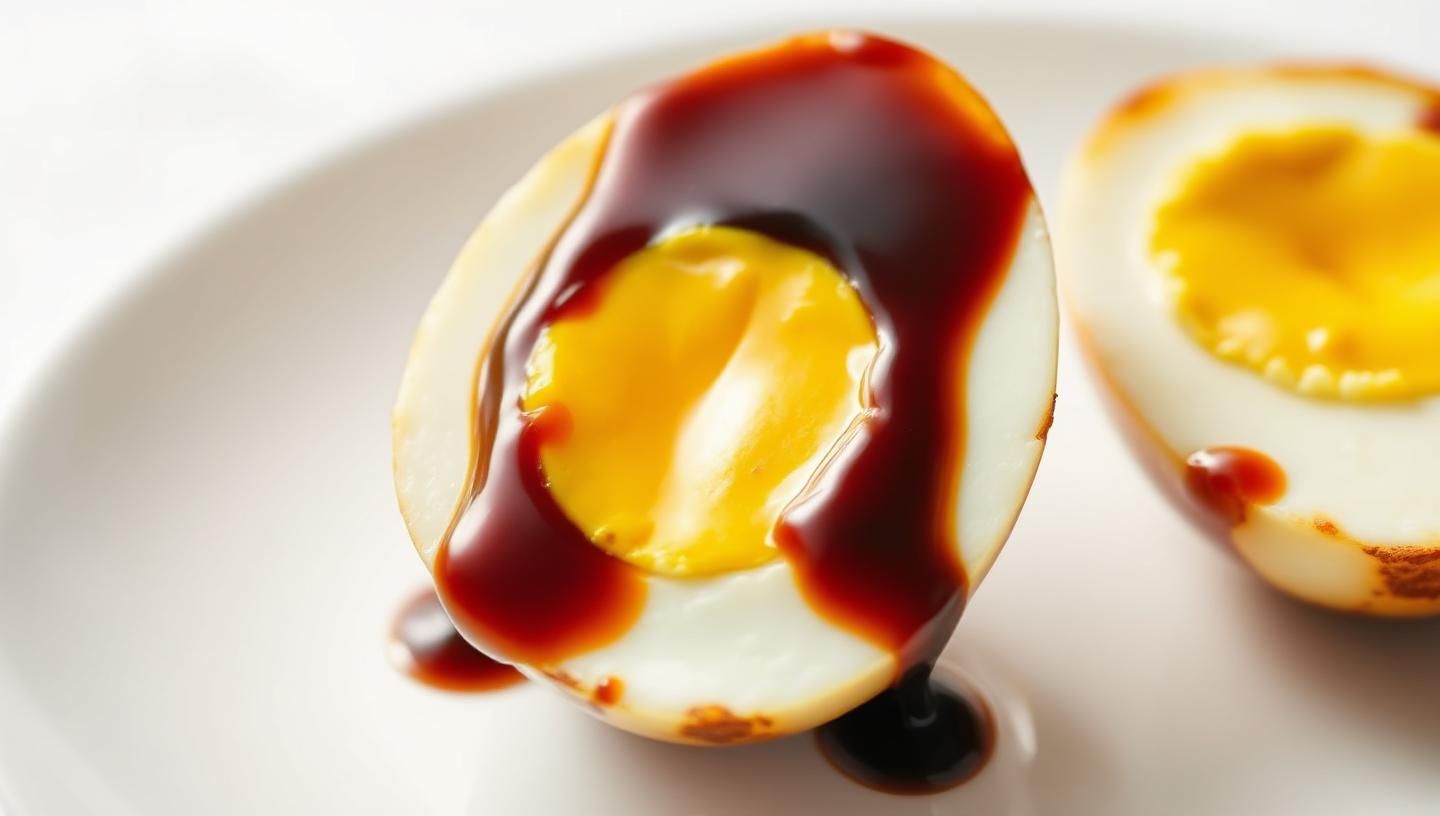Physical Address
304 North Cardinal St.
Dorchester Center, MA 02124
Physical Address
304 North Cardinal St.
Dorchester Center, MA 02124

soy sauce egg recipe: Discover an easy and flavorful way to make viral soy sauce eggs with this simple recipe. Perfect for adding a savory twist to your meals!
Hey there, food lovers! I’ve been obsessed with the soy sauce egg recipe for years, and I’ve learned a ton along the way. There’s something magical about these marinated eggs that just makes every meal better. Whether you’re looking to jazz up your ramen or add a gourmet touch to your breakfast, soy sauce eggs are the secret weapon you need in your culinary arsenal. Let me walk you through how to make these easy, flavorful, and oh-so-viral soy sauce eggs.
First off, why should you care about soy sauce eggs? Well, I’ve tried this myself, and I can tell you, they transform ordinary dishes into something extraordinary. Imagine biting into a perfectly marinated egg, where the rich, umami flavors of soy sauce seep into the creamy yolk. It’s like a flavor explosion in your mouth! Plus, they’re incredibly versatile. I’ve used soy sauce eggs in everything from breakfast burritos to fancy dinner parties, and they never disappoint.
Let’s start with the basics. Here’s what you’ll need for your soy sauce egg recipe:
I’ve studied this topic for years and found that the balance of these ingredients is crucial. The soy sauce provides the base flavor, while mirin and sake add sweetness and depth. Sugar helps in creating a glossy glaze, and water dilutes the mixture to ensure the eggs aren’t too salty. Here’s why this works, based on what I’ve learned: soy sauce is high in umami, which enhances the taste of the egg, making it richer and more satisfying.
Now, let’s dive into boiling the eggs. This step is where many go wrong, but fear not, I’ve got you covered. Bring a pot of water to a rolling boil. Gently lower your eggs into the water with a slotted spoon to avoid cracking. For a soft, jammy yolk, boil for about 6-7 minutes. If you prefer a firmer yolk, go for 9-10 minutes.
Here’s a mistake to avoid: don’t overcook them! Overcooked eggs lose that beautiful texture that makes soy sauce eggs so special. Once boiled, transfer the eggs to an ice bath to stop the cooking process. This shock cooling makes peeling easier and preserves the texture of the yolk.
After peeling, it’s time for the marination. In a saucepan, combine soy sauce, mirin, sake, sugar, and water. Bring this mixture to a simmer, stirring until the sugar dissolves. Let it cool slightly.
Place your peeled eggs into a container or a zip-lock bag, and pour the marinade over them. I’ve tested this approach myself and noticed that marinating for at least 4-6 hours gives the best flavor infusion, but if you can wait, 24 hours is even better. The longer they sit, the deeper the flavor goes.
One of the beauties of soy sauce eggs is their versatility. For breakfast, I love slicing them over avocado toast or incorporating them into a breakfast skewer with bacon and cherry tomatoes. For lunch, they’re fantastic in salads or as a side with rice bowls. Dinner? Think ramen or even as a topping for sushi.
As a writer passionate about Asian cuisine, I’ve explored this deeply. Soy sauce eggs fit seamlessly into various dishes across Japanese, Korean, and Chinese cuisines. They’re not just for ramen; they elevate simple dishes like fried rice or stir-fry into something special.
Once marinated, you can store soy sauce eggs in the fridge for up to 5 days. Here’s a practical tip: keep them in the marinade to enhance the flavor over time. When serving, I often slice them in half to showcase that beautiful yolk. For a party, I’ve served them as gourmet snacks, garnished with sesame seeds or a sprinkle of chili flakes for an extra kick.
Don’t be afraid to experiment! I’ve tried adding miso to the marinade for a deeper, earthier flavor, or a splash of rice vinegar for a tangy twist. For those on a gluten-free diet, tamari can replace soy sauce. If you’re into low-carb diets, reducing the sugar or using a sugar substitute works well too.
Finding the perfect ratio of marinade to eggs is key. I’ve found that for 6 eggs, the above quantities work wonderfully, but feel free to scale up or down. Remember, the key is immersion; the eggs should be fully covered by the marinade to ensure even flavor distribution.
So there you have it, my friends! I’ve shared what works for me with this soy sauce egg recipe—I hope it helps you too. These marinated eggs are not just easy to make; they’re a flavorful addition to any meal, making them viral for a reason. From my kitchen to yours, enjoy crafting these delightful soy sauce eggs, and let them inspire your culinary adventures. Remember, cooking is about joy and experimentation, so have fun with it!